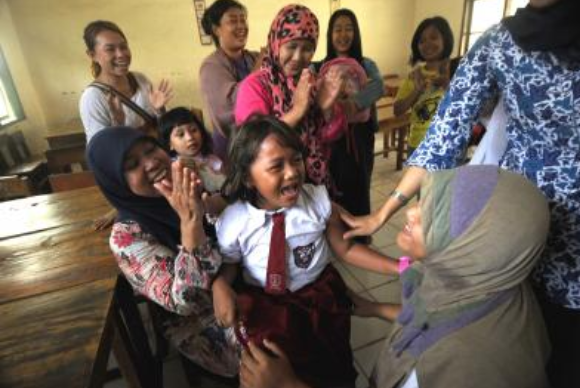Health
14.5 million missed on vital DTP vaccine globally in 2023: UN

New Delhi, July 15
Global childhood immunisation levels stalled in 2023, with a whopping 14.5 million kids missing out on the essential three doses of the vaccine against diphtheria, tetanus, and pertussis (DTP) vaccine, according to a new report by the UN organisations on Monday.
The report by the WHO and UNICEF provides estimates of national immunisation coverage (WUENIC) for vaccinations against 14 diseases.
It showed that 84 per cent (108 million) children received three doses of the vaccine against DTP in 2023. However, 14.5 million did not receive a single dose of the vaccine -- an increase from 13.9 million in 2022.
In addition, 6.5 million children did not complete their third dose of the DTP vaccine, the key to achieving disease protection in infancy and early childhood.
“The latest trends demonstrate that many countries continue to miss far too many children,” said UNICEF Executive Director Catherine Russell, in the report.
Further, the report showed that vaccination rates against the deadly measles disease stalled. About 35 million children did not receive the vaccine or only had partial protection.
Only 83 per cent of children worldwide received their first dose of the measles vaccine through routine health services in 2023. However, the number of children receiving their second dose modestly increased from 2022, reaching 74 per cent of children.
The report also blamed the low vaccination rate against measles for driving outbreaks -- in about 103 countries in the last 5 years. On the other hand, 91 countries with strong measles vaccine coverage did not experience outbreaks, it noted.
“Measles outbreaks are the canary in the coal mine, exposing and exploiting gaps in immunisation and hitting the most vulnerable first,” said Dr Tedros Adhanom Ghebreyesus, WHO Director-General.
He added that it “is a solvable problem”.
The report also highlighted improved immunisation coverage for human papillomavirus (HPV), meningitis, pneumococcal, polio, and rotavirus disease in the 57 countries supported by Gavi, the Vaccine Alliance.
It noted that the share of adolescent girls globally who received at least 1 dose of the HPV vaccine, which protects against cervical cancer, increased from 20 per cent in 2022 to 27 per cent in 2023.
At the same time, the HPV vaccine coverage reached only 56 per cent of adolescent girls in high-income countries and 23 per cent in low-and middle-income countries. The target was 90 per cent to eliminate cervical cancer as a public health problem.
The report calls for the need to accelerate efforts to meet the Immunisation Agenda 2030 (IA2030) targets of 90 per cent coverage, and no more than 6.5 million ‘zero-dose’ children globally by 2030.



































